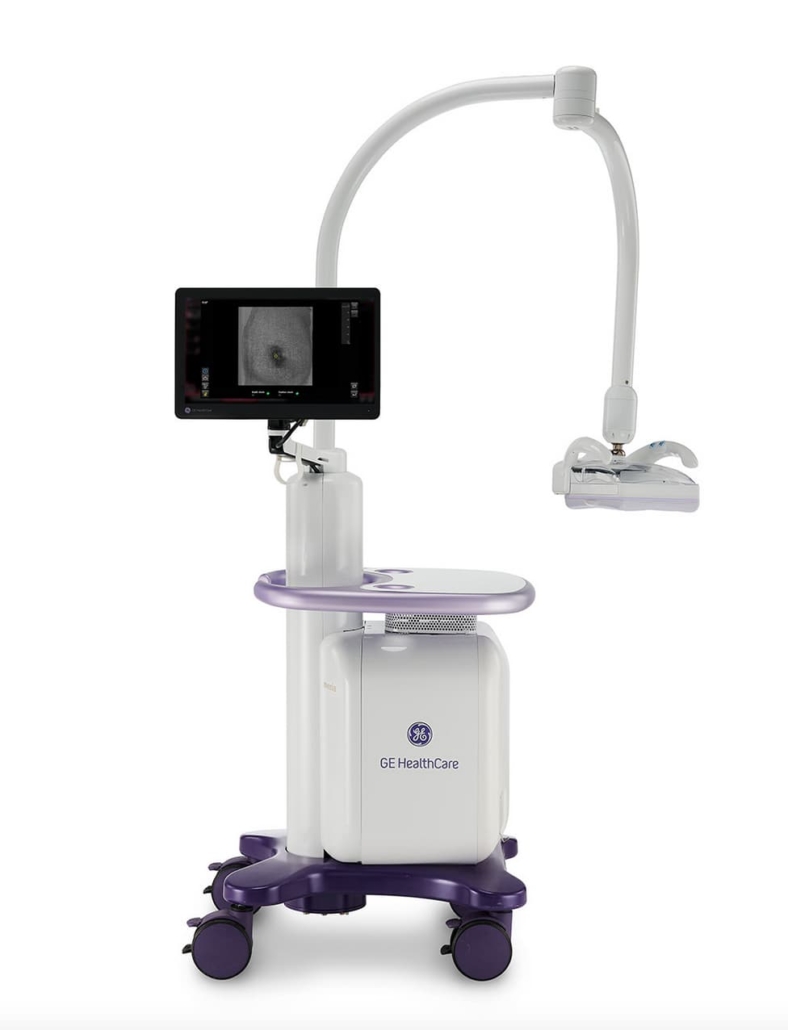GE HealthCare unveils AI-powered Invenia ABUS Premium for dense breast screening
GE HealthCare has launched Invenia ABUS Premium, an advanced 3D ultrasound system designed to enhance breast cancer screening in women with dense breast tissue. The technology, which received Premarket Approval from the US Food and Drug Administration, incorporates artificial intelligence to accelerate scanning times and improve image quality.
Dense breast challenges addressed
Dense breast tissue, which affects approximately 40% of women in the US and Europe and 70% of Asian women, presents significant challenges for traditional mammography screening. Research indicates that dense breast tissue increases cancer risk four to six times, yet approximately one-third of cancers in dense breasts may go undetected by mammography alone.
“Women with dense breasts often face poorer outcomes due to malignancies detected at later, more advanced stages. Invenia ABUS Premium equipped with AI has the potential to optimise clinicians’ screening capabilities, enabling them to detect even small, early-stage cancers with a high degree of confidence in women with dense breasts,” said Karley Yoder, CEO of Comprehensive Care Ultrasound, GE HealthCare.
AI-driven efficiency improvements
The new system features Verisound AI technology that includes Scan Quality Assessment for immediate qualitative evaluation during exams and Auto Nipple Detection for consistent nipple marker positions. Additionally, the Fast Scan tool increases scan speed by up to 40% compared to the previous model.
For radiologists, the Invenia ABUS Viewer with AI Assistant helps streamline the reading process. This feature utilises intelligent algorithms to assist in detecting and characterising breast lesions, which can enhance clinical confidence and reading efficiency – an important consideration given current staffing shortages in radiology departments.
Patient experience optimised
The non-invasive design prioritises patient comfort, with a novel Reverse Curve transducer that follows the contour of a woman’s breast anatomy. Selectable compression levels provide personalised comfort during examinations, and a patient experience study showed that 100% of women would recommend an ABUS exam to a friend.
“The Invenia ABUS Premium is superior with its special AI features, which ensure the breast volume is captured and offer automatic nipple annotation, reducing scanning time and streamlining clinical workflow,” said Athina Vourtsis, MD, PhD, Chief Director and Founder of Athena Medical, Athens, Greece and Founding President of the Hellenic Breast Imaging Society.
“The new Reverse Curve transducer makes the examination more patient friendly, and it is much more comfortable. There has been great improvement in image quality with less shadowing, and the structures behind the area of the nipple are seen more clearly, providing radiologists with greater diagnostic confidence.”
Evidence-based approach
The system builds on growing evidence supporting ABUS as a valuable supplemental screening tool. Studies have shown that ABUS can improve the sensitivity of detecting invasive cancer in dense breasts when added to mammography by providing clearer and more detailed images.
The technology may also help reduce unnecessary biopsies by providing specific image features to distinguish malignant tumours, potentially enabling clinicians to escalate care sooner when needed. Additionally, it eliminates patient exposure to radiation or contrast agents.
GE HealthCare plans to launch Invenia ABUS Premium in key countries throughout 2025, with the system being showcased at major radiology congresses including ECR, NCoBC and SBI Symposium.
- For more information, visit: https://www.gehealthcare.com/products/ultrasound/breast-ultrasound/invenia-abus-premium


